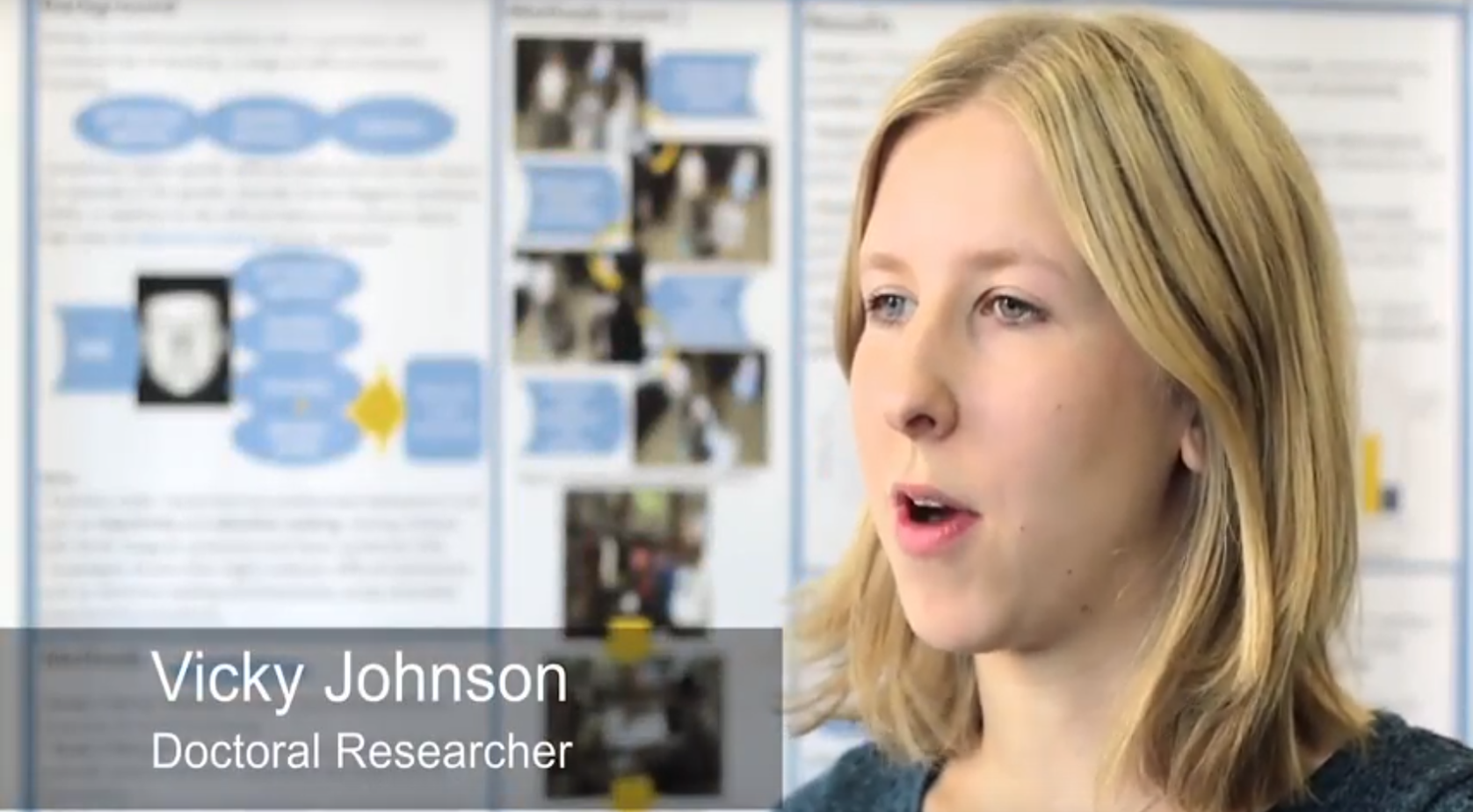Cognitive Characteristics
There has been preliminary research that has focused on cognitive characteristics in Rubinstein-Taybi syndrome. Cognitive characteristics refer to brain based processes.
In the short film at the top of this page Dr Vicky Johnson introduces the term ‘executive functions’. These are brain based processes that control and regulate our behaviour.
The preliminary research suggested that the repetitive behaviours that are prevalent within Rubinstein-Taybi syndrome may be associated with problems in executive functions. You can find out more about the repetitive behaviours observed in individuals with Rubinstein-Taybi syndrome here.
Executive functions are often broken down into three main types:
- Inhibition – being able to stop a previously learnt or impulsive behaviour
- Working memory – being able to hold information in mind for a particular task
- Attention shifting – being able to move attention away from one situation to another
Inhibition
Research has indicated that individuals with Rubinstein-Taybi syndrome may have a delayed onset of the development of their inhibition skills when compared to typically developing children.
Older individuals performed better on inhibition tasks compared to younger individuals suggesting that it is a delayed onset of the development of skills rather than individuals with Rubinstein-Taybi syndrome not acquiring the skills at all.
Working memory
Similarly, older individuals with Rubinstein-Taybi syndrome performed better on tasks assessing working memory compared to younger individuals with Rubinstein-Taybi syndrome with the delayed onset of the development of these skills compared to typically developing children.
On average, within the study individuals with Rubinstein-Taybi syndrome were able to keep 2-3 words in mind at one time. This finding suggests that individuals may benefit from bite-sized chunks of information.
Individuals with Rubinstein-Taybi syndrome had particular difficulty with remembering sequences consisting of visual information. This suggests that although in some situations, visual information may be helpful for individuals with Rubinstein-Taybi syndrome, they may also benefit from information presented verbally.
A published study completed at the University of Birmingham in 2016 focused on the development of working memory in individuals with Rubinstein-Taybi syndrome. It was suggested that individuals with Rubinstein-Taybi syndrome show an improvement in their verbal working memory as they get older but this wasn’t found for their visuo-spatial working memory. This may suggest that individuals with Rubinstein-Taybi syndrome may have particular difficulty with their visual working memory abilities.
The results of this study were collected at a specific point in time and individuals with Rubinstein-Taybi syndrome were not followed up over time. This means that the findings should be interpreted with caution as more research is needed to confirm them.
You can download the research paper focusing on this here.
Attention shifting
Research suggested that individuals with Rubinstein-Taybi syndrome find it difficult when there is complex attention shifting e.g. many attention shifts in a short period of time, compared to typically developing children. However, further research needs to confirm this and focus on why this may be.
Links between repetitive behaviour and executive functioning
Taking these findings together, there was an association found between repetitive questioning in individuals with Rubinstein-Taybi syndrome and their performance on tasks of inhibition and the verbal working memory task.
Additionally, there was also an association found between ‘completing behaviour’ (insisting that activities/objects are ‘complete’ or ‘whole’) and attention shifting.
These findings suggest that repetitive behaviour in Rubinstein-Taybi syndrome may be related to difficulties in executive functioning.
You can read more about this research here.
Theory of Mind
Research has also looked at another brain process known as Theory of Mind. Theory of Mind can be defined as an individual’s ability to reason about another’s thoughts and feelings.
Research has indicated that individuals with Rubinstein-Taybi syndrome passed early Theory of Mind tasks such as ‘helping’ and ‘cooperation’ but found later tasks more difficult. These later tasks may have been more difficult for individuals with Rubinstein-Taybi syndrome as they had included a working memory demand of an individual having to remember facts about an event/story.
You can read more about this research here.
It is really important to note that the research described on this page has not yet been published, except the one study stated as being published and so more research needs to be done to confirm these preliminary findings.




